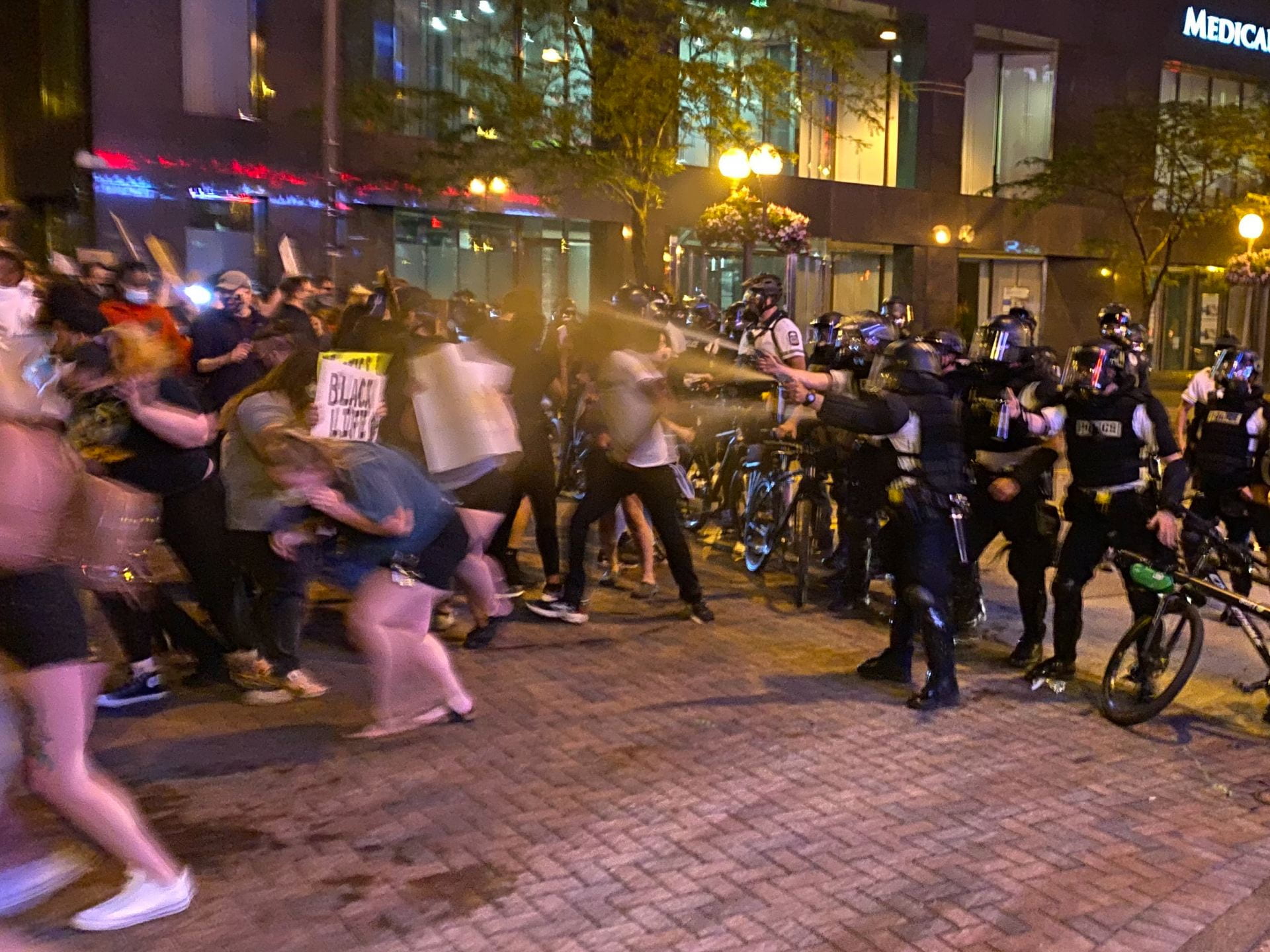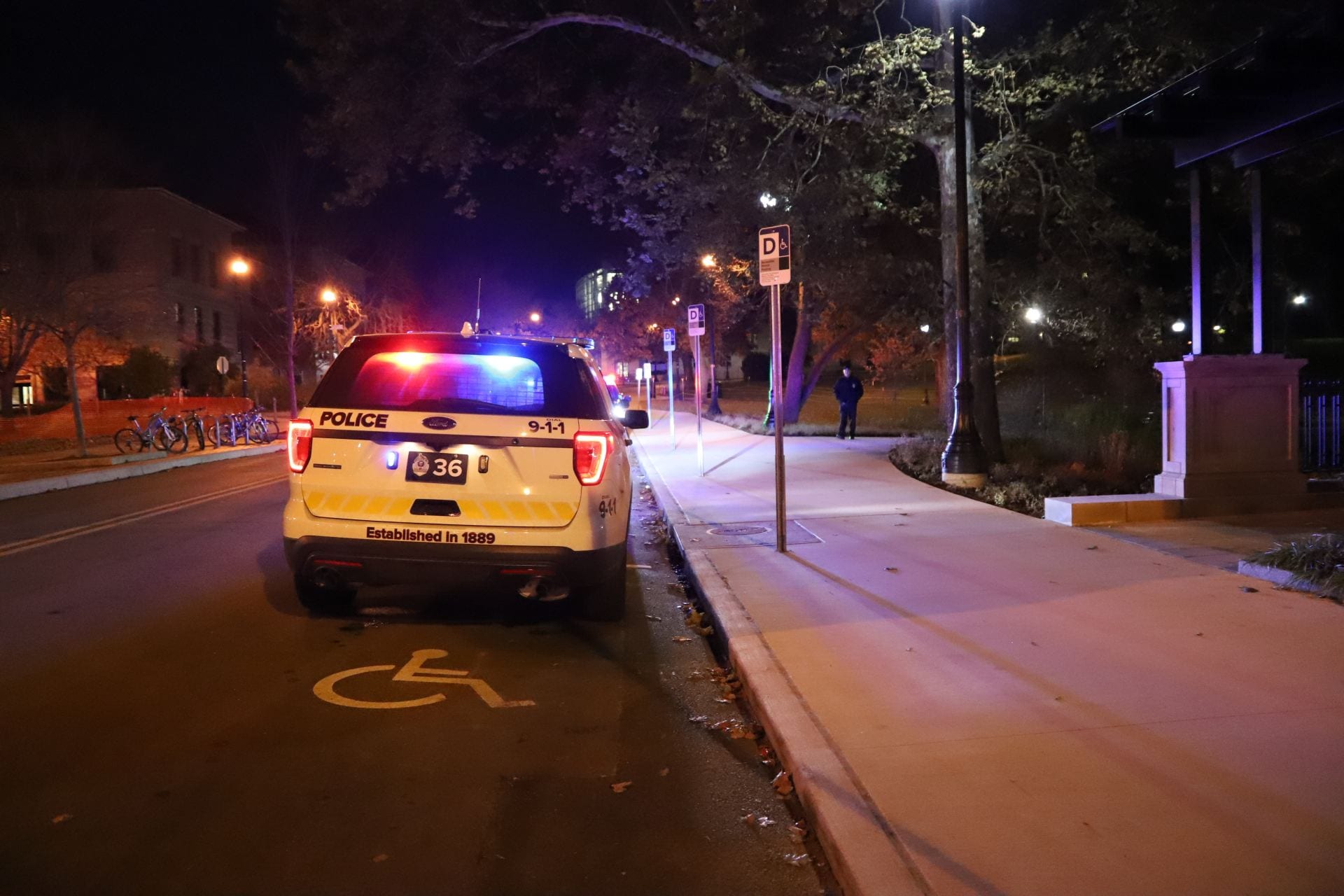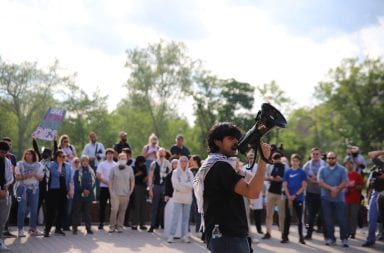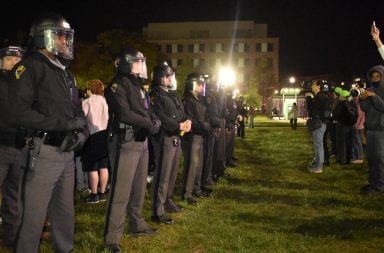
Columbus Police pepper-sprayed protesters May 28. 2020 after a Lime scooter was thrown at police. Credit: Max Garrison
The Columbus City Council passed an ordinance Monday that restricts the equipment Columbus Division of Police officers can use against peaceful protestors, awaiting Mayor Andrew Ginther’s signature.
Council President Pro Tempore Elizabeth Brown, who presented the ordinance, said at the meeting the ordinance restricts Columbus Police officers from using chemical agents, explosives, helicopters and pyrotechnics to prevent their misuse when officers are making arrests. It also requires police officers to wear identification on their uniforms.
Brown said the ordinance comes after an April 2021 court ruling that banned Columbus Police’s use of pepper spray, tear gas and rubber bullets wielded against peaceful protestors during the 2020 Black Lives Matter demonstrations. The legislation also comes after over 26 people filed lawsuits against the Columbus Police for their conduct during the protests.
Adrienne Hood, a mother who lost her son — Henry Green — to two Columbus police officers in 2016, expressed her support for the ordinance.
“I am surprised and hurt that we have to have an ordinance that will require our police department to do what they already took an oath to do, and that’s to serve and protect,” Hood said at the meeting.
Columbus Police could not be reached for comment at the time of publication.
Brown said the ordinance also requires police officers to report any use of force used against peaceful protestors from the year before to the council. The public is allowed to record police interactions during protests, and press is able to present credentials as long as they don’t interfere with arrests, enter a closed crime scene or impede medical personnel offering assistance.
Brown said the city council already adopted a Civilian Police Review Board in 2020 in response to Columbus Police’s use of force on peaceful protesters. The board aims to build trust between the public and the police, investigate the department and recommend discipline and policy changes, according to the board’s website.
Brown said a public hearing in 2020 attracted 70 speakers and 906 additional testimonies that expressed concerns over police behavior during the protests.
“Fast forward in the wake of the protests in 2020, the way we equip our police force came under new scrutiny, and the public weighed in, in a big way,” Brown said.
The changes in the ordinance echo Columbus residents’ lack of trust in Columbus Police, Brown said.
“Resident feedback has underscored the fact that the public’s trust in law enforcement is closely linked to the tactics and equipment that law enforcement use, both in first amendment demonstrations and in neighborhoods across Columbus everyday,” Brown said.


